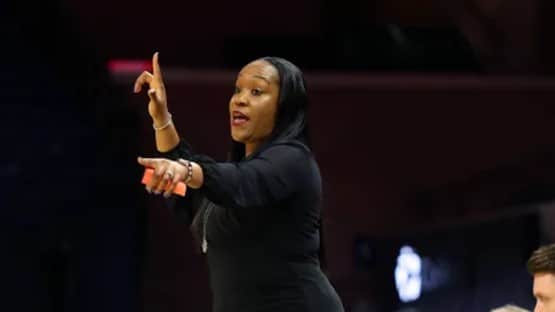
First, Florida State, and today, Clemson, are suing the ACC, trying to get out from under the deal signed by the member schools in 2016 binding them together for 20 years, with dramatic financial penalties for those seeking to leave.
“The ACC’s position regarding the Grant of Rights, the exit penalty, and obligations owed by members to the conference, as detailed in its public statements and other court filings, leaves Clemson with no choice but to move forward with this lawsuit,” Clemson Athletics said in a statement, which notes that the school “has not given notice that it is exiting the ACC, and remains a member of the conference.”
Yeah, for now, but it’s clear where Clemson’s heart, and head, lie.
FSU and Clemson are #2 and #3 in the ACC in annual athletics revenues, per data from USA Today, which actually has Virginia slightly ahead of Florida State in revenues in the 2022 fiscal year, at $161.9 million.
Virginia ranked 14th nationally in athletics revenues in 2022, with FSU at #15, and Clemson at #17.
Eleven of the top 13 schools in the revenue list are from the SEC and Big 10, with five schools – Ohio State, Texas, Alabama, Michigan and Georgia – all reporting $200 million-plus in revenues in the 2022 fiscal year.
Texas (at #2) and Oklahoma (at #10) are headed to the SEC for the 2024-2025 sports year.
The challenge being waged by FSU and now Clemson aims to attack the two foundational pieces of the 2016 deal – the Grant of Rights and the exit fee – that have kept the SEC and Big 10 from poaching schools from the ACC.
The grant of media rights, on paper, disincentivizes schools from leaving by binding their revenues from the broadcast rights to their home games to the ACC through the end of the deal in 2036.
The value of that, plus exit fee, currently in the area of $140 million, was estimated at $572 million in the suit filed by FSU late last year.
“Each of these erroneous assertions separately hinders Clemson’s ability to meaningfully explore its options regarding conference membership, to negotiate alternative revenue-sharing proposals among ACC members, and to obtain full value for its future media rights,” the lawsuit filed by Clemson on Tuesday claims.
I’m not hearing anything being whispered behind the scenes to this effect, but I’l still wonder aloud here about what is being done on this at UVA, which, obviously, just from the numbers, has as much or more at stake on the athletics-revenues front going forward as FSU and Clemson do.
Virginia, with its strong position in athletics dollars, and access to a seemingly unlimited pot of money from a well-heeled alumni and donor base, has been rumored to be a target of both the SEC and Big 10 since the most recent round of conference realignment got going again in 2022.
I can’t imagine UVA sitting on the sidelines that much longer, with two flagship ACC programs signaling that the end is nigh.
Update: Tuesday, 3:33 p.m. Statement from UVA President Jim Ryan, chair of the ACC Board of Directors, and ACC Commissioner Jim Phillips:
“The ACC remains confident that its agreements with all its members will be affirmed by the courts. Clemson, along with all ACC members, voluntarily signed and re-signed the 2013 and 2016 Grant of Rights, which is binding through 2036. In addition, Clemson agreed to the process and procedures for withdrawal. The Conference’s legal counsel will vigorously enforce the agreement and bylaws in the best interests of the ACC’s current and incoming members.”










